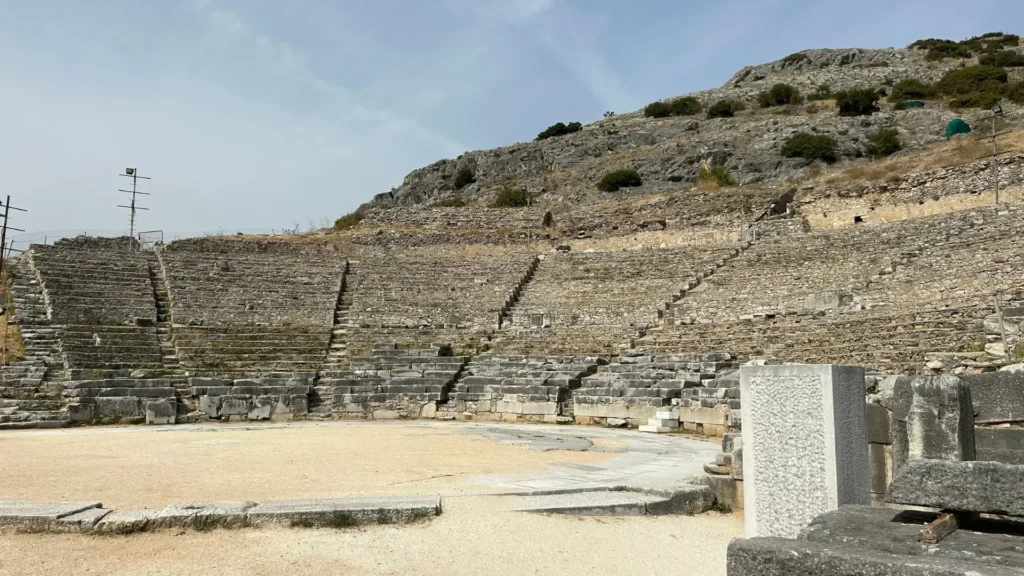The Roman Empire in Greece
The Roman Empire in Greece, a pivotal period in history, witnessed the fusion of Roman might and Greek intellect. Romans admired Greek culture and philosophy, significantly impacting their own society. Conquests, such as the Macedonian Wars and Achaean War, solidified Roman control over Greece. Romans adapted Greek military tactics and left a lasting legacy.

Roman Empire in Greece
Roman Inspiration from Greek Culture
The Roman Republic and later the Roman Empire held Greece in high regard, particularly admiring its rich culture, philosophy, and art. Roman scholars, writers, and philosophers eagerly embraced Greek literature, adopting the Greek alphabet for writing Latin, which ultimately laid the foundation for the modern Western alphabet. The works of Greek philosophers like Plato and Aristotle profoundly influenced Roman thought, sparking intellectual and philosophical endeavors that left a lasting legacy.
Roman Conquest and Governance
In 146 BCE, following the defeat of Carthage, Rome expanded its influence into Greece, effectively ending Greek independence and making it a Roman province. The Romans, recognizing the strategic and cultural importance of Greece, invested in infrastructure projects such as roads, aqueducts, and public buildings. While Roman rule brought stability and order, it also resulted in heavy taxation, leading to economic strain on the Greek population.
The Wars Between Greeks and Romans
Throughout their history, the Greeks and Romans engaged in several conflicts, including the Macedonian Wars (214-148 BCE) and the Achaean War (146 BCE). The Macedonian Wars marked the end of Macedonian dominance in Greece, with Rome asserting control. The Achaean War resulted in the destruction of Corinth and the division of Southern Greece into two Roman provinces, further solidifying Roman dominance.
Military Tactics and Roman Adaptation
Roman military strategy was heavily influenced by the Greeks. The Romans admired the disciplined phalanx formation used by Greek hoplites and adopted it into their own legions. However, the Romans modified this tactic, creating a flexible system that accommodated various battlefield conditions. This adaptability contributed to the Roman army’s dominance in the ancient world.
Legacy of Roman Greece
The Roman era in Greece was transformative. It brought forth a fusion of Roman and Greek cultures, commonly referred to as Greco-Roman culture, which laid the groundwork for Western civilization. Despite the decline of Greece as a political entity, its cultural and intellectual influence endured, serving as a bridge between the ancient world and the Renaissance. The Romans’ admiration for Greek accomplishments ensured that Greece’s legacy remained relevant for generations to come.
